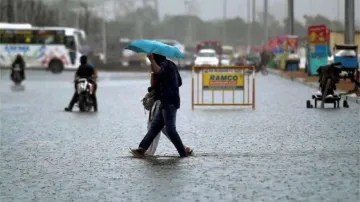Monsoon 2024: The India Meteorological Department (IMD) has forecasted above-normal rainfall for India in August and September. There is also a strong possibility of favourable La Niña conditions developing by the end of August. The IMD said that rainfall over India in August and September would be 106 per cent of the long-period average of 422.8 mm.
The monsoon is vital for India's agricultural sector, as 52 per cent of the net cultivated area depends on it. Additionally, it plays a key role in replenishing reservoirs essential for drinking water and power generation throughout the country.
India recorded 453.8 mm rainfall so far
As of now, India has recorded 453.8 mm of rainfall since June 1, which is 2 per cent above the normal of 445.8 mm, due to a wetter-than-normal July following a drier June.
The IMD has forecasted normal to above-normal rainfall for most parts of the country. However, below-normal rainfall is expected in parts of the northeast, adjoining east India, Ladakh, Saurashtra, Kutch, and some areas of central and peninsular India, according to IMD Chief Mrutyunjay Mohapatra during an online press conference.
Mohapatra also predicted deficient rainfall in parts of the western Himalayan region for August and September.
Additionally, above-normal maximum temperatures are expected over most parts of the country, with normal to below-normal maximum temperatures anticipated in some areas of the Gangetic plains, central India, and the southeast coast, Mohapatra said.
India recorded 9% more rainfall than normal in July
In July, India recorded nine per cent more rainfall than normal, with central India experiencing a 33 per cent excess in precipitation. This is the third consecutive monsoon season with favourable rainfall for central India, which is crucial for agriculture.
However, there have been significant rainfall deficits in east Uttar Pradesh, Bihar, Jharkhand, Gangetic West Bengal, and parts of the northeast. Additionally, Haryana, Punjab, Himachal Pradesh, and Jammu and Kashmir have faced deficits ranging from 35 percent to 45 per cent.
The Indian monsoon naturally experiences fluctuations and variability due to various natural factors. Research indicates that climate change is increasing this variability, leading to more extreme weather events and prolonged dry spells.
(With PTI inputs)
Also Read: Himachal rain havoc: 3 dead, over 50 missing after cloudburst in Shimla, Mandi districts, rescue operations on
Also Read: Another basement tragedy! 4-year-old among three killed as rainwater floods houses in Jaipur
Latest India News
